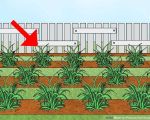Best Herbicides for Residential Lawns: A Comprehensive Guide
If you're a homeowner with a beautiful lawn, you know that keeping it lush and green requires more than just regular watering and mowing. Weeds can be a persistent issue, and without the right lawn care products, they can quickly take over your yard. One of the most effective ways to control unwanted weeds is by using herbicides. In this article, I'll walk you through the best herbicides for residential lawns and provide tips for selecting the right one based on your needs.
1. Understanding Herbicides: What Are They and How Do They Work?
Herbicides are chemical substances used to control or kill unwanted plants, commonly known as weeds. They work by disrupting the normal growth processes of plants, either by affecting photosynthesis, growth hormones, or cell structures. Some herbicides are selective, meaning they target specific types of plants, while others are non-selective, killing all plants they come into contact with.
When choosing a herbicide, it's important to consider the type of weeds you are dealing with, your lawn’s grass type, and whether you prefer organic or synthetic options. Applying herbicides correctly and at the right time is essential to prevent damage to your lawn and the environment.
2. The Best Herbicides for Different Types of Weeds
Weeds come in many varieties, and each one may require a different type of herbicide. Below are some of the most common types of weeds and the herbicides that work best to control them.
2.1 Broadleaf Weeds
Broadleaf weeds are typically larger, with wide leaves, and include plants like dandelions, clover, and chickweed. These weeds are often easy to spot on your lawn due to their distinctive shape and size.
The best herbicides for controlling broadleaf weeds are selective and won't harm your grass. Some of the top-rated options include:
- 2,4-D Herbicide: Widely used for dandelions, clover, and other broadleaf weeds, 2,4-D is a reliable and effective selective herbicide.
- Triclopyr Herbicide: Ideal for tough-to-remove weeds like poison ivy, triclopyr is often recommended for areas with heavy weed growth.
- Dicamba Herbicide: Dicamba works well against a variety of broadleaf weeds, and it’s commonly found in combination herbicide products.
2.2 Grassy Weeds
Grassy weeds like crabgrass, foxtail, and goosegrass are more difficult to control because they closely resemble desirable turfgrass. For these types of weeds, pre-emergent herbicides are most effective.
Top herbicides for grassy weed control include:
- Pre-emergent Herbicides: Products containing ingredients like pendimethalin, benefin, or dithiopyr prevent the germination of grassy weeds.
- Post-emergent Herbicides: For established grassy weeds, products containing quinchlorac or fenoxaprop-p-ethyl work best. They’re designed to kill weeds that have already sprouted.
3. Organic and Eco-Friendly Herbicide Options
If you prefer using more natural products, there are several organic herbicide options available that are effective in controlling weeds without harmful chemicals. These herbicides are a great choice for eco-conscious homeowners who want to keep their lawn looking beautiful while being mindful of the environment.
Some of the most popular organic herbicides include:
- Vinegar-Based Herbicides: A strong vinegar solution can kill many types of weeds, especially young ones. It works by dehydrating the plants and causing them to wither away.
- Corn Gluten Meal: This pre-emergent herbicide prevents weed seeds from germinating and is often used for controlling broadleaf and grassy weeds.
- Essential Oils: Some essential oils, like clove or cinnamon oil, can be mixed with water to create a natural weed killer. These oils disrupt the cellular structure of weeds and help to eliminate them without harming your lawn.
4. How to Apply Herbicides Safely and Effectively
Using herbicides requires careful application to ensure that they are effective and safe for your lawn. Here are a few tips to get the best results:
- Read the Label: Always read the label and follow the instructions carefully. This will help you understand how to apply the herbicide, the appropriate timing, and any safety precautions.
- Apply at the Right Time: For pre-emergent herbicides, apply them early in the season before weeds begin to germinate. For post-emergent herbicides, wait until weeds are actively growing.
- Use Proper Equipment: Invest in a quality sprayer or spreader to apply the herbicide evenly. This will help prevent over-application and ensure better coverage.
- Weather Considerations: Avoid applying herbicides on windy days or when rain is expected. This can prevent the herbicide from drifting or washing away before it has a chance to work.
5. Conclusion
Choosing the right herbicide for your residential lawn is essential for maintaining a healthy, beautiful lawn. Whether you prefer chemical or organic options, there is a product suited to your needs. By understanding the different types of weeds and herbicides, as well as how to apply them safely and effectively, you can ensure that your lawn remains free of weeds and looks its best all year long.
If you're looking for more guidance on lawn care and the best products for your needs, check out our recommendations at Lawn Care Services for top-rated herbicides and expert advice!








